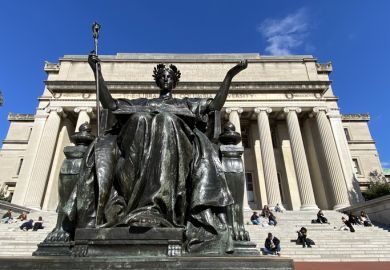A committee of MPs will examine the student loans system later this year, with some in the sector urging it to consider whether the funding should be judged as public spending and subject to tighter controls.
The National Audit Office, which scrutinises public spending on behalf of Parliament, is working on a study of the student loans system to be published in the autumn.
The Public Accounts Committee will then hold a hearing into the auditors’ findings.
On its website in a summary of the work in progress, the NAO says that by the end of March 2012, the student loan book was valued at £28 billion and “is set to rise further in step with the recent increase in tuition fee loans”.
It adds that the study will “examine the arrangements overseen by the Department for Business, Innovation and Skills and the Student Loans Company”, and operated through the pay-as-you-earn tax system.
However, others in the sector believe that the NAO and the PAC could range beyond this territory.
Sir Alan Langlands, chief executive of the Higher Education Funding Council for England, has raised the issue that funding routed via the SLC - which will constitute virtually all English higher education funding for teaching by 2014-15 - is subject to less regulation and oversight by Hefce.
Speaking at the council’s annual meeting in November and in response to audience questions, Sir Alan said that it was “a moot point” as to whether money flowing through the SLC “is public or private money”.
He added: “I think the crunch on that will be whether the [NAO] and the [PAC] look at this issue…and take a view on whether it is right to have £7 billion flowing through the [SLC] where there are no controls in place.”
Looks lower, is higher
When the transition to the new funding system is completed in 2014-15, the government will be spending about £2 billion more a year on higher education than under the old system, owing to the extra expenditure on student loans.
However, because loans are not treated as orthodox public spending, this will appear as a reduction of about £1 billion a year on the old system.
Bahram Bekhradnia, director of the Higher Education Policy Institute, said of the NAO study: “I am glad that this question is being taken seriously.
“The state is taking on huge commitments with the claim that these [loans] do not amount to public money because 70 per cent of them will be repaid. That is at best a hugely uncertain assumption.”
Hepi itself published a study in November that claimed that the government had overestimated the amount of loan funding that will be repaid, and it suggested that this could wipe out all the predicted savings to the taxpayer delivered by the new system.
Mr Bekhradnia said he thought the NAO was “bound to get into the question of how much will be repaid and whether it is correct not to treat the liability as a public liability”.
Register to continue
Why register?
- Registration is free and only takes a moment
- Once registered, you can read 3 articles a month
- Sign up for our newsletter
Subscribe
Or subscribe for unlimited access to:
- Unlimited access to news, views, insights & reviews
- Digital editions
- Digital access to THE’s university and college rankings analysis
Already registered or a current subscriber? Login



